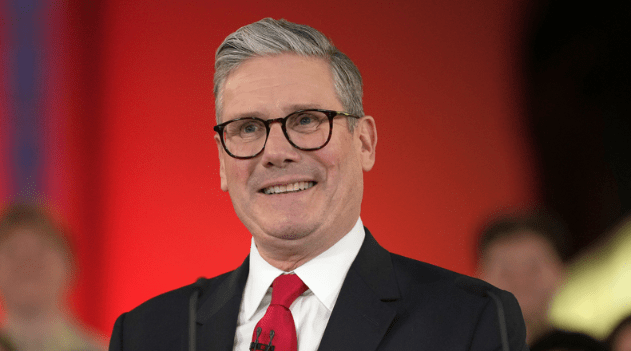Rising Costs Spark Outrage Over Wildlife-Protecting Tunnel
Senior government figures have erupted in anger over the ballooning cost of a tunnel designed to protect rare bats along the HS2 high-speed rail route, labelling the expenditure “ludicrous.”
The latest estimate pegs the cost of the so-called “bat tunnel” at nearly £125 million—a figure that’s roughly 30% higher than initially forecast. Built to shield the elusive Bechstein’s bats from the disruption of passing HS2 trains, the 900-metre structure has become a lightning rod in the debate over Britain’s infrastructure strategy.
Environment Secretary Steve Reed said, “Spending vast sums to build a ‘bat tunnel’ is ludicrous.
“For too long, regulations have held up the building of homes and infrastructure, blocking economic growth and doing little for nature. That is why we are introducing new planning reforms and a Nature Restoration Fund to unblock the building of homes and infrastructure and improve outcomes for our natural world.”
Price Hikes and Political Frustration
Originally estimated at £95 million in 2019 under a Conservative government, HS2 later updated the figure to £114.8 million in 2023, citing inflation. But economists and civil engineers now suggest the real cost has crept closer to £125 million, with inflation pressures compounding the rise.
Despite mounting costs, the tunnel remains on track for completion in 2027. Mark Wild, HS2’s recently appointed CEO, is attempting to “reset” the project, though insiders acknowledge delays will likely drive costs even higher.
One Whitehall official, speaking anonymously, said the decision to continue with the tunnel through ancient Buckinghamshire woodland was “fucking bonkers,” adding that halting construction now would be too late and even more costly.
Rail Minister Peter Hendy confirmed in March that the tunnel’s construction is “well advanced” and noted that abandoning the project in favour of an alternative would be more expensive than completing it.
The scheme has ignited fury among environmental campaigners and sceptics alike. The Bat Conservation Trust has accused politicians of using the tunnel as a “political scapegoat” to justify weakening environmental safeguards.
HS2 CEO Mark Wild defended the decision, stating he “can’t apologise” for a measure that was the “most appropriate” way to “comply with the law.”
Starmer Criticises ‘Absurd Spectacle’
Labour leader Keir Starmer, fresh off a landslide election win, has condemned the tunnel as an “absurd spectacle,” as his government seeks to advance a new planning reform bill aimed at removing red tape blamed for stifling economic growth.

However, the bill is drawing fire from MPs concerned about its potential to override wildlife protections.
Luke Charters, a Labour MP serving on the Public Accounts Committee, voiced concerns: “The tunnel has already more than doubled the cost of this section of railway, and I’m concerned the final bill could climb even higher once inflation and long-term maintenance are factored in.”
Originally launched in 2012, HS2 was envisioned as a Y-shaped network linking London, Birmingham, Manchester, and Leeds. The initial price tag stood at £32.7 billion with a projected start date of 2026.
But costs spiralled due to over-ambitious timelines and shifting project scopes, including the decision to construct the controversial tunnel to appease opposition in rural constituencies.
By 2019, HS2’s budget had surged to £98 billion. The northern extension was later scrapped by then-Prime Minister Rishi Sunak in 2023, sparking backlash from the rail sector.
An HS2 spokesperson noted: “The demands of the UK planning and environmental consents process come at a high cost, largely out of HS2 Ltd’s control.
“To comply with laws protecting vulnerable species, including internationally protected bats near Sheephouse Wood, a covered structure over the HS2 line is being built. A range of alternative options were reviewed and rejected on the grounds that they were more expensive or failed to pass the legal test.”
As the debate over cost, conservation, and progress rages on, the ‘bat tunnel’ remains a symbol of Britain’s ongoing struggle to balance development with environmental duty. With costs still rising and political scrutiny mounting, the structure is likely to remain under the microscope for years to come.






